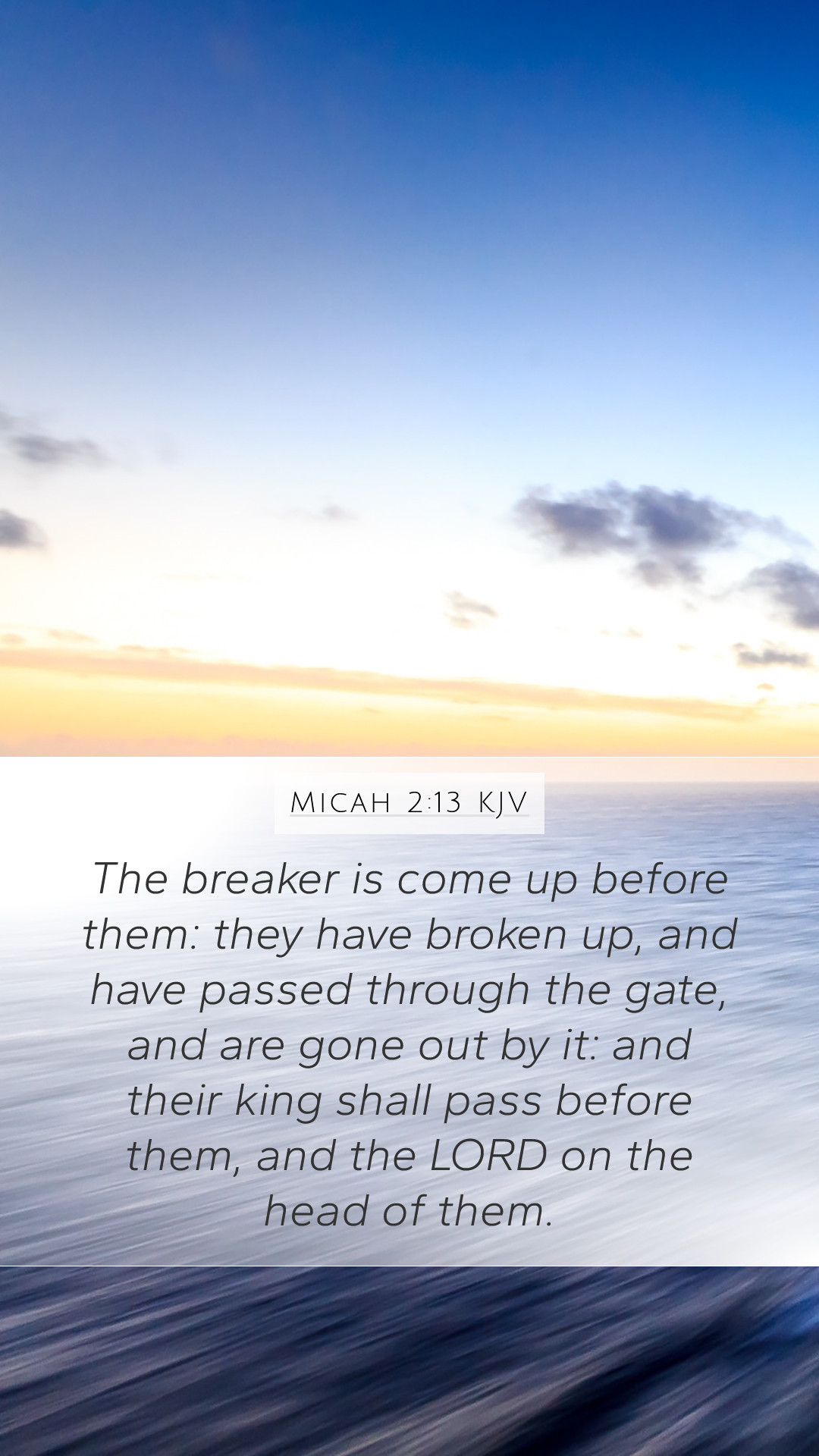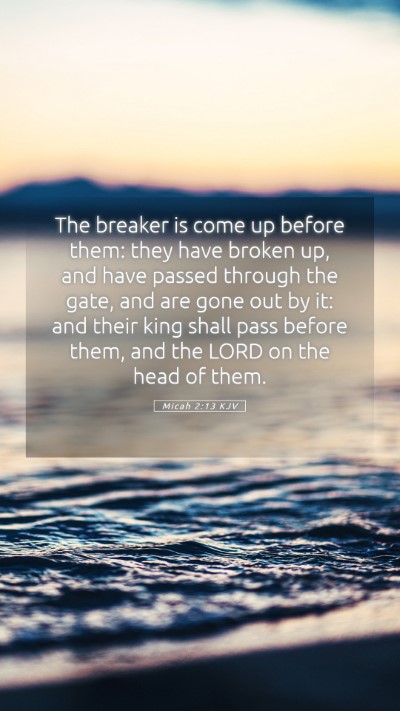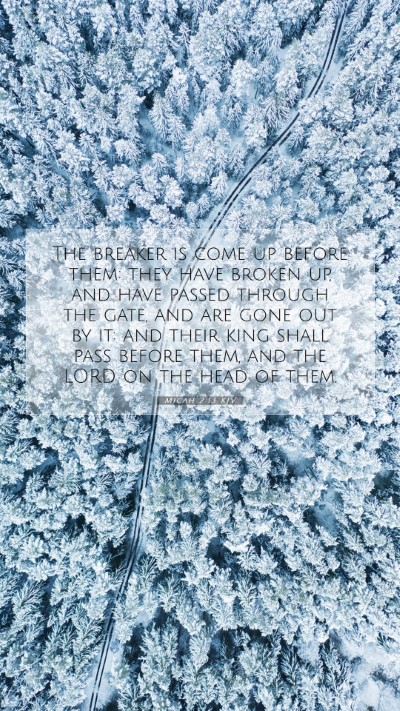Old Testament
Genesis Exodus Leviticus Numbers Deuteronomy Joshua Judges Ruth 1 Samuel 2 Samuel 1 Kings 2 Kings 1 Chronicles 2 Chronicles Ezra Nehemiah Esther Job Psalms Proverbs Ecclesiastes Song of Solomon Isaiah Jeremiah Lamentations Ezekiel Daniel Hosea Joel Amos Obadiah Jonah Micah Nahum Habakkuk Zephaniah Haggai Zechariah MalachiMicah 2:13 Meaning
What is the meaning of Micah 2:13?
The breaker is come up before them: they have broken up, and have passed through the gate, and are gone out by it: and their king shall pass before them, and the LORD on the head of them.
Micah 2:13 Bible Verse Meaning
Understanding Micah 2:13
Verse Reference: Micah 2:13 - "The breaker is come up before them: they have broken up, and have passed through the gate, and are gone out by it: and their king shall pass before them, and the LORD on the head of them."
Bible Verse Meanings
This passage from the Book of Micah presents a powerful image of deliverance and leadership. The term "breaker" signifies a leader who boldly leads his people through trials, making a way for them amidst obstacles. The verse embodies themes of hope, liberation, and divine guidance.
Bible Verse Interpretations
According to Matthew Henry, this verse can be seen as a messianic prophecy, indicating the coming of Christ who would break barriers for His people. Albert Barnes emphasizes the victorious nature of God's leader, suggesting He leads His people from oppression to freedom. Adam Clarke notes the significance of kingship, wherein the Lord Himself is portrayed as leading His people, indicating God's sovereignty and involvement in their deliverance.
Bible Verse Understanding
The context of Micah revolves around God's judgment and restoration of Israel. The "breaker" symbolizes not only a leader but also represents God's intervention in human affairs, signifying a transition from despair to hope. This transition is essential for understanding Scripture's broader narrative around God's faithfulness to His covenant people.
Bible Verse Explanations
- Divine Leadership: The passage illustrates God's role as the ultimate guide and protector for His people, particularly in their darkest moments.
- Hope for Restoration: The context of Micah shows a message of hope, where despite current adversities, God's promises of deliverance are assured.
- Significance of 'The Breaker': This term refers to the one who leads and prepares the path for others, akin to how Christ paved the way for salvation.
Bible Verse Commentary
In public domain commentaries, various interpretations suggest that the verse encapsulates the essence of God's deliverance, with a focus on the messianic promise. The 'breaker' indicates not just a physical but a spiritual liberation that is orchestrated under God's direction. This resonates with the historical context of Israel's struggles against oppression, making it a timeless source of encouragement for believers seeking guidance in difficult times.
Scripture Analysis
Analyzing this verse reveals profound insights into the theological implications of leadership and God's covenant with His people. It highlights the character of God as a breaker of barriers and a leader who walks ahead of His flock. This serves as an essential understanding of His role throughout biblical history and into present faith practices.
Biblical Exegesis
From a more scholarly perspective, exegesis of Micah 2:13 points to the crucial role of prophetic literature in conveying messages from God, illustrating His desire to restore and guide His people. This verse can be employed in Bible study topics focusing on the fulfillment of prophecy throughout scripture, particularly in the context of Christ's ministry.
Application of Micah 2:13
For contemporary readers, this verse serves as a reminder that God is always ahead, breaking down the walls that hinder us. Whether in personal struggles or societal challenges, the promise of His leading brings strength and comfort.
Cross References
- Isaiah 43:16-19: God's assurance of making a way in the wilderness.
- Jeremiah 30:18-20: Restoration promised to Israel.
- Zechariah 10:3-5: The shepherds leading the flock.
- John 10:11: Jesus as the good shepherd.
- Hebrews 13:20-21: God as the great shepherd of the sheep.


